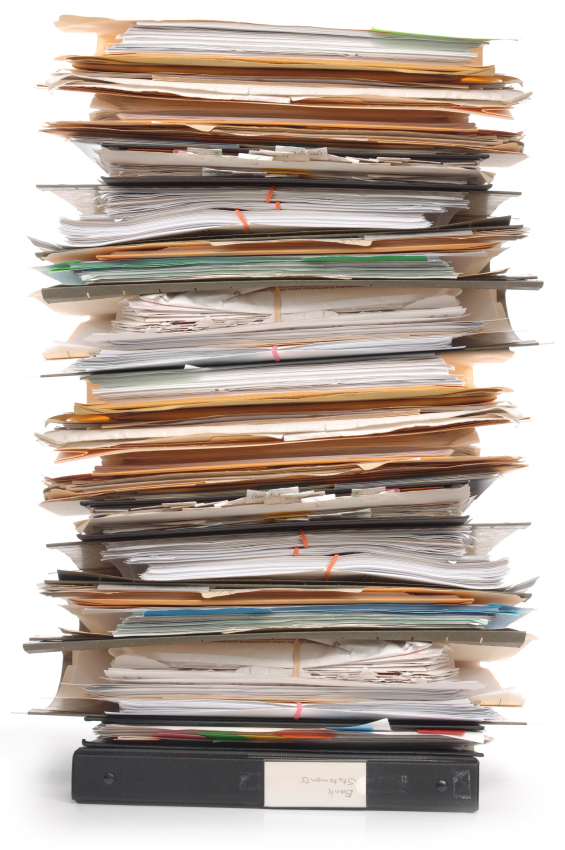You know that flood of papers you get pretty much daily? The mail, the bills, the free newspaper you pick up, the catalogs, the kids![IMG_1231[1]](https://www.afreshspace.com/wp-content/uploads/2013/03/IMG_12311-150x150.jpg) permission slips & homework, the wedding invitation, the coupon flyers, etc. For many of my clients, all of this ends up in piles. These piles end up on the kitchen counter, stuffed in a drawer, on the dining room table…pretty much wherever there is a flat surface or an empty space. And these piles seem to multiply like rabbits. So when it is time to actually do something about the papers, or find a particular paper, panic sets in because it is overwhelming.
permission slips & homework, the wedding invitation, the coupon flyers, etc. For many of my clients, all of this ends up in piles. These piles end up on the kitchen counter, stuffed in a drawer, on the dining room table…pretty much wherever there is a flat surface or an empty space. And these piles seem to multiply like rabbits. So when it is time to actually do something about the papers, or find a particular paper, panic sets in because it is overwhelming.
When it comes to dealing with papers, having a good system in place is key. But you can make that system work more efficiently by reducing the amount of papers you have at hand as well as doing some initial sorting before you even get set to deal with them.
The first step is to reduce what comes in. This can be accomplished in a couple of ways:
- Get off mailing lists. Use the DMA website to opt out of mailing lists (also email & telemarketers) and contact companies directly that send you catalogs to ask for removal from their lists. Be aware that it can take 6 months to a year before they stop.
- Don’t pick up those free papers, coupons you won’t use or recipes from the grocery store. Say no when someone offers you a flyer or handout at a meeting unless it is critical that you have it.
- Stop subscribing to magazines or newspapers that don’t get read. If you have more than a years worth of a magazine and you can’t recall the last time you picked on up, it’s probably time to say farewell to that subscription.
- Ask for documents in digital formats that you can file easily for retrieval on your computer or smart phone instead of paper.
The second step is to deal with the papers once they arrive (and they will!) by doing a pre-sort. Have a designated ‘in box’ for them in a convenient location. The inbox can be one from an office supply store, a wicker basket or a cardboard box. Doesn’t matter. BUT, before the papers ever touch that inbox, take a few steps to reduce future work:
- Have 2 trash bins near the inbox – one for shredding and one for recycling/garbage. Take a minute and toss anything you know immediately that you don’t want away. If it has identifying information it gets dropped into the shred bin and everything else is recycled. For me this would be unsolicited credit card offers, coupons to places I don’t shop, junk mail, etc.
- Have a designated holder for bills and invitations. This could be a basket, a letter holder, or whatever works for your space. After removing the shred/recycle items, immediately set bills and/or invitations into their place.
- Place any magazines or catalogs in a basket or holder in the space where they are read. Extra credit: create a folder or bin for holding coupons you might use.
- Create a spot to hold kids forms and papers. Sort those out right away. One folder/tray/etc. per kid. (see my post on dealing with kids papers HERE)
- NOW you can place any remaining items in your in box. And only there – not scattered about.
The final step is to set a time at least once a week to deal with your papers. Now it won’t seem so daunting because the only papers left are those that you need, not a big random pile.
Take a deep breath and just a few minutes to pre-sort those papers. You can do it! And you’ll be glad you did.


